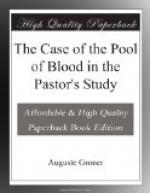It's been a week since I've posted. The reason is because I've been contemplating what I should have said to my friend. Sitting at the table, in a dinner for Book Club, my friend turned to me and asked, "Is it wrong to hate and wish evil happen to someone?" Needless to say, the question took me by surprise. Sensing she was really asking if she were a bad person to "wish evil" upon someone. I said "no." Well, for the past week, my answer has been bothering me. I prayed about it. I've read what those whom I respect have written, and I came up with the letter below.
The person and situation are political. My friend is enraged that our current president is in power. She feels deeply and I sense partly ashamed of her vindictive hate. After all, she is a good person. How could these evil emotions overwhelm her?
This is reminiscence of King David and his kingdom. How could his enemies triumph over God's chosen people? She feels what David felt. David expressed his very human feelings in lyrics. We call these lyrics, psalms. Meditating upon the psalms, I felt better able to respond to my friend. So, I wrote her this letter.
Dear Friend,
You asked me if it were wrong to wish harm on Trump and his ilk. I intuit what you felt yet were concerned. After prayer and reading, I can formulate a better response than what I gave you, on Thursday. The short answer is no. However, I think it is important to know why. Reading these imprecatory psalms will resonate with your feelings: Psalms 5, 10, 17, 35, 58, 59, 69, 70, 79, 83, 109, 129, 137 and 140. An imprecation is a curse that invokes misfortune upon someone. These particular psalms were calling down God's judgment on the enemies of Israel. God promises to help the persecuted and bring judgment on sinners. These psalms are asking for justice to be done.
In the book of Psalms, you will find the whole range of human experience. Most of the psalms were written by David. In them he confesses sins, doubts, and fears. He asks God for help and gives Him praise. David also gives advice--suggestions as to what David would like God to do to his enemies (you'll like these, see 109). Imprecatory psalms are true human feelings.
While Jesus instructs us to hate evil and work to overcome it--hate the sin but love the sinner, because everyone is made in the image of God. Pray for the grace to separate the actions from the person. Like David, we should pray for God to be swift in His judgment of evil people. The psalms were not written out of vindictiveness or vengeance. Instead, David was invoking God's protection against degenerate and ruthless conquerors, who repeatedly tried to destroy God's people.
Jesus, Himself, quoted some imprecatory psalms, John 2:17 and 15:25. However, Jesus asks us to love our enemies--Note Well--the New Testament makes it clear that our enemy is spiritual, not physical! Ephesians 6:12.
Let's pray for compassion for the people who are under the devil's influence. We should want everyone to come to repentance. 2 Peter 3:9. Above all, seek the will of God in everything, have patience, and leave the final outcome to the Lord. Romans 12:19.
Peace,
Faith
Psalm 109
For the director of music. Of David. A psalm.
1My God, whom I praise,
do not remain silent,
2for people who are wicked and deceitful
have opened their mouths against me;
they have spoken against me with lying tongues.
3With words of hatred they surround me;
they attack me without cause.
4In return for my friendship they accuse me,
but I am a man of prayer.
5They repay me evil for good,
and hatred for my friendship.
6Appoint someone evil to oppose my enemy;
let an accuser stand at his right hand.
7When he is tried, let him be found guilty,
and may his prayers condemn him.
8May his days be few;
may another take his place of leadership.
9May his children be fatherless
and his wife a widow.
10May his children be wandering beggars;
may they be driven from their ruined homes.
11May a creditor seize all he has;
may strangers plunder the fruits of his labor.
12May no one extend kindness to him
or take pity on his fatherless children.
13May his descendants be cut off,
their names blotted out from the next generation.
14May the iniquity of his fathers be remembered before the Lord;
may the sin of his mother never be blotted out.
15May their sins always remain before the Lord,
that he may blot out their name from the earth.
16For he never thought of doing a kindness,
but hounded to death the poor
and the needy and the brokenhearted.
17He loved to pronounce a curse—
may it come back on him.
He found no pleasure in blessing—
may it be far from him.
18He wore cursing as his garment;
it entered into his body like water,
into his bones like oil.
19May it be like a cloak wrapped about him,
like a belt tied forever around him.
20May this be the Lord’s payment to my accusers,
to those who speak evil of me.
21But you, Sovereign Lord,
help me for your name’s sake;
out of the goodness of your love, deliver me.
22For I am poor and needy,
and my heart is wounded within me.
23I fade away like an evening shadow;
I am shaken off like a locust.
24My knees give way from fasting;
my body is thin and gaunt.
25I am an object of scorn to my accusers;
when they see me, they shake their heads.
26Help me, Lord my God;
save me according to your unfailing love.
27Let them know that it is your hand,
that you, Lord, have done it.
28While they curse, may you bless;
may those who attack me be put to shame,
but may your servant rejoice.
29May my accusers be clothed with disgrace
and wrapped in shame as in a cloak.
30With my mouth I will greatly extol the Lord;
in the great throng of worshipers I will praise him.
31For he stands at the right hand of the needy,
to save their lives from those who would condemn them.








